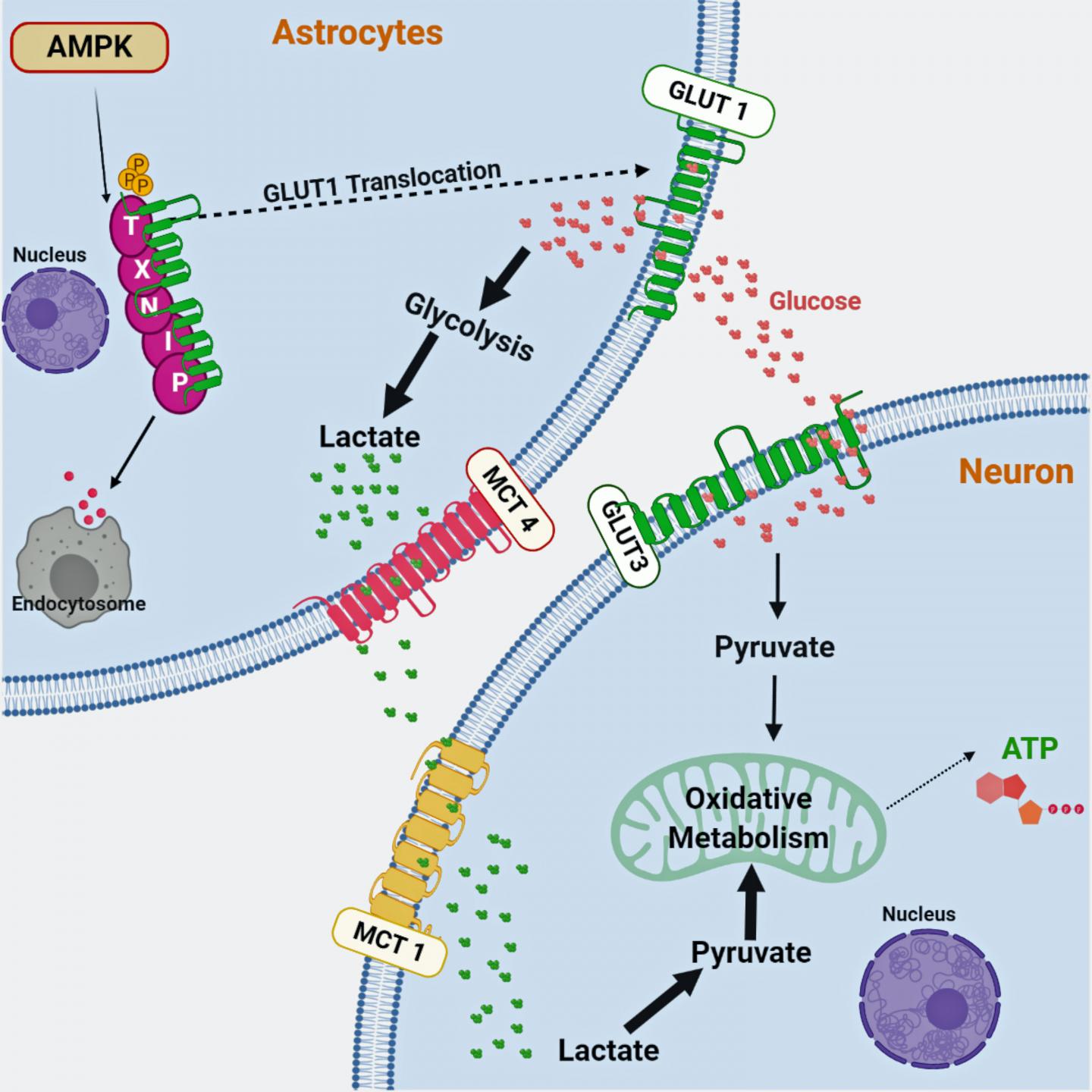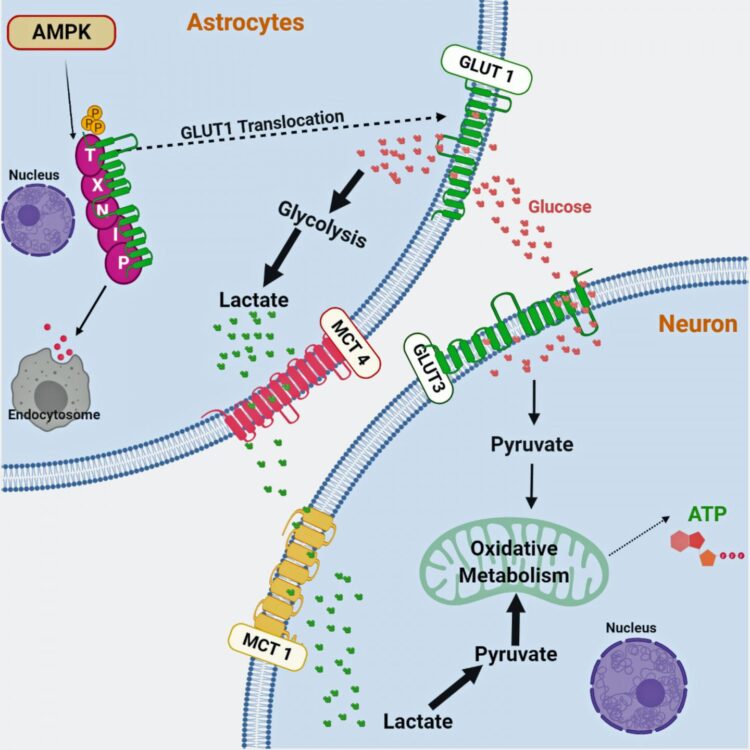Preclinical study in Cell Reports points to possible treatment for epileptic seizures

Credit: Cincinnati Children’s
CINCINNATI – Scientists studying neuronal energy metabolism found evidence that the loss of an important energy regulator called AMPK in neural stem cells or glial cells called astrocytes causes neuronal death in laboratory rodents. They also discovered that AMPK loss in neural stem cells or neurons causes spontaneous brain seizures in the animals.
Publishing their findings in Cell Reports, the multi-institutional research team–led by Cincinnati Children’s cancer biologist Biplab Dasgupta, PhD–said deleting AMPK from astrocyte brain cells led to severe disruption of glucose and lactate metabolism in neurons. The clue came from the first ever magnetic resonance spectroscopy studies in brain-specific AMPK deletion mice done at the University of Minnesota (UM).
The collaborative study, which included Raghu Rao, MD, and Ivan Tkac, PhD, at UM, revealed that AMPK deleted mice have about 40 percent lower lactate levels, a key result that was verified in cultured astrocytes.
The findings that AMPK deleted neurons demonstrate spontaneous seizures and are vulnerable to low dose seizure-inducing agents came from the neurology laboratory of Christina Gross, PhD, of Cincinnati Children’s, and appear to suggest that the popular antidiabetic drug metformin (that also activates AMPK) may mitigate epileptic seizures. Metformin is currently being tested preclinically in laboratory rodents, according to Dasgupta, a principal investigator in the Cancer and Blood Diseases Institute.
“Very little is known about how astrocytes regulate glycolysis to generate lactate and supply it to neurons to support their metabolism and proper functioning,” Dasgupta said. “We show for the first time that AMP kinase (AMPK) is the bottom line of the mechanism that controls astrocytic glycolysis and lactate production in the brain. And we show that interfering with this process does little harm to astrocytes but damages neurons.”
Neuronal metabolism is critical to every aspect of our lives and functioning. The question of whether glial cells like astrocytes are necessary for proper neuron metabolism and survival has been debated in the scientific field for decades.
Researchers in the current study set out to make progress toward settling that debate and they used a long list of experimental procedures to come up with some new answers. Importantly, the results obtained in mouse brains from the Dasgupta lab were recapitulated in the brains of the fruit fly Drosophila where using six different models of AMPK deletion.
Study co-author Dr. Stefanie Schirmeier at the University of Münster in Germany found that AMPK deletion in the fly glia causes neuronal death and reduces lifespan of the mutant flies. This and other results, including conservation of these functions in human astrocytes, make it possible that AMPK-controlled lactate metabolism provides life support for neurons in people, according to the researchers.
###
Funding support for the research came from the National Institute of Health (RO1NS075291, RO1NS099162, RO1MH15058, RO1NS092705, P41EB015894, P30N576408).
Media Contact
Nick Miller
[email protected]
Related Journal Article
http://dx.





